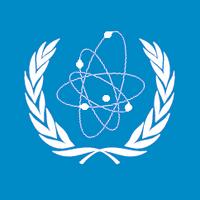 The original draft of this entry was lost to a Windows 98 crash, so I've recreated it, but in a shorter form (so I can go back to doing important stuff).
The original draft of this entry was lost to a Windows 98 crash, so I've recreated it, but in a shorter form (so I can go back to doing important stuff).
The Pentagon has revealed a new doctrine, which gives major consideration to post-conflict rebuilding, emphasising the need for planning to 'win the peace' in conflict preparations, and the role of training of the forces for this end. Some analysts are worried that this will bring a new schizophrenia into the forces, may be too difficult for some, and could damage troops' capabilities.
My view is that there won't be a major shift in training any time soon. This kind of shift would take years to realise in the training grounds, where it will probably meet organisational resistance from those directly responsible for training. Moreover, with continuing controversy of the ongoing operations in Iraq, this move smells slightly reactionary. It also looks like the generals are planning for the previous conflict, as generals have done throughout the ages. Bearing this in mind, this shift is probably relatively temporary - after a withdrawal from Iraq neither the American government nor its citizens will have much stomach for another war (whatever pundits mumble about Iran or Syria), at least for a few years. That should be ample time for this doctrine to be mostly replaced, or at least watered-down in practice.
It's been a while since my last update - that's because I've been hard at work (and play) with a forthcoming book draft to be rasped, filed, sanded and polished for a colleague at the IIR, and at the same time I've been going to milongas, tango classes, aikido (occasionally), football, and runs with the HHH. The rest of the time I've been too tired to bother updating.
Some of you Americans out there might like to read this. I'd be worried...
What else is happening? Well, not too much, thankfully. Mostly electioneering, or pre-electioneering. The Iraqi elections seem to have gone well; people are making noises about reductions in troop deployments - fair enough, if the violence dies down and the Iraqi forces get to grips with the task. Israeli politics has shifted a bit to the centre with the new Kadima party - good, if it stops the extreme right hampering peaceful developments over there, yet the party's already in trouble. And Palestinian politics have taken an interesting turn, with the departure of some high-ranking Fatah politicians to form a new electoral list with anti-corruption and (seemingly) pragmatic policies. So, all in all, this is pretty positive. The Iraqi elections, with a big turnout and absence of large-scale disruption, bode well, Palestinians now have the option of voting against both Fatah's cronyism and Hamas' extremism, and the Israeli landscape has shifted: hopefully the result will reduce the instability and conflict inherent in the governmental coalitions in recent years.
Right - time for dinner, then I have a tango class to go to.
 Thanks once more to the very hospitable Luboš, I've just returned from Mšeno in North Bohemia, where we went hiking yesterday and horseriding today. It's a few degrees colder than Prague, with lows of about -5°C, and was snowing quite a bit. The scenery was great.
Thanks once more to the very hospitable Luboš, I've just returned from Mšeno in North Bohemia, where we went hiking yesterday and horseriding today. It's a few degrees colder than Prague, with lows of about -5°C, and was snowing quite a bit. The scenery was great.
I'm going to have a rest. Milonga tonight!
 So, Iran has won a short reprieve from a possible referral to the UN Security Council over its nuclear programme. This is to allow Russia to badger Iran into shifting uranium enrichment, which Iran currently hopes to undertake at Natanz, to Russian soil, under Russian scientists. Such a solution would save Iran from sanctions, would save Russian prestige from the humiliation of being proved wrong over the 'peaceful' nature of Iran's nuclear efforts, and would speed Iran towards its stated goal of peaceful nuclear energy. The solution would also address Iran's problems with extracting uranium hexafloride gas (UF6) from uranium yellowcake, although the Iranians might feel some shame if the Russians refuse to put Iranian UF6, which is currently crap, through Russian centrifuges for fear of damaging them.
So, Iran has won a short reprieve from a possible referral to the UN Security Council over its nuclear programme. This is to allow Russia to badger Iran into shifting uranium enrichment, which Iran currently hopes to undertake at Natanz, to Russian soil, under Russian scientists. Such a solution would save Iran from sanctions, would save Russian prestige from the humiliation of being proved wrong over the 'peaceful' nature of Iran's nuclear efforts, and would speed Iran towards its stated goal of peaceful nuclear energy. The solution would also address Iran's problems with extracting uranium hexafloride gas (UF6) from uranium yellowcake, although the Iranians might feel some shame if the Russians refuse to put Iranian UF6, which is currently crap, through Russian centrifuges for fear of damaging them.
Unfortunately, if, like me, you still suspect that Iran's intentions aren't all that peaceful, you won't be surprised if Iran either rejects this compromise outright, or accepts it and then cheats on it by trying to develop enrichment capabilities anyway.
 Once again, I have too little time for a proper update - I've been hard at work ever since coming back from the UK.
Once again, I have too little time for a proper update - I've been hard at work ever since coming back from the UK.
It was great to see friends and family overe there - big hellos to Stephen, Alex, Dan, Karen, Howard, and Pregnant Penny. :-)
Actually, I'd really intended just to complain about France, French immigration/assimilation policy, and Chirac. Big surprise, eh? Since this is a very quick update, I'll just say that the Commission's offer of 50 million euros to France to help redress its inequalities is ludicrous. France is hardly in need of funding - what it does need is a change in policy to fully recognise and tackle this problem directly. And that's exactly what President Chirac has failed to do. Curfews and the state of emergency are short term measures, and Chirac's long-term proposals amount to little more than a reaffirmation of "French values" (I'm assuming this means inequality and racial discrimination) and the establishment of a voluntary task force to promote youth employment. So that's all right then - there's no need to identify the under privilaged and racist employers after all. Other French politicians have stressed the need for economic growth and relaxed labour market restrictions. Good luck to them.
I'm still focusing on my AIB application, so little time for a proper update. I had an excellent weekend - a great Halloween party on Saturday followed by a run on Sunday, co-hared by myself, and a milonga to follow.
As for international relations, it's nice to see the fears of many people not realised. The Bush administration seems to have learned a lesson or two from the mess in Iraq, and are taking a softer diplomatic route with Syria, and for that matter with Iran. John Bolton may not be the best tool for the job, but his rhetoric, along with others in the administration shows an understanding that a unilateral policy will not work here (Russia and China must be on board regarding action in the UN Security Council), and that careful diplomacy will bring better results than antagonism.
It's also nice to see an opportunity for some reconciliation not being wasted (as I'd feared) between India and Pakistan. It's just a shame we can't manage disaster diplomacy without the disaster.
 I've had a great weekend running, drinking and eating with the Prague Hash House Harriers on their 6th Turkey Run weekend. My ankle is doing very well, and preparations for AIB are going smoothly.
I've had a great weekend running, drinking and eating with the Prague Hash House Harriers on their 6th Turkey Run weekend. My ankle is doing very well, and preparations for AIB are going smoothly.
If you want my thoughts on Iran's recent nuclear offering, drop me a line. I'm a bit short of time right now. I'm cleaning the flat, and have a milonga later.
The weekend IHT has an interesting article on French agricultural policy here. It basically conforms with my views on the topic, although I'm a little more inclined to put it all down to (wounded) prestige.
 It's nice to see some progress in reducing Western subsidies and tariffs on agriculture, with the American administration's opening gambit of a steep reduction of tariffs for the coming WTO trade talks in Geneva. But Oxfam is right to complain that the cutting of tariffs alone won't help the developing world - subsidies need much more attention (much more than the 2% currently being discussed over there). The American administration's goal of an end to all tariffs and subsidies by 2023 is also laudable, but too long-sighted! 17 years is ample time for future administrations to cancel those plans many times over.
It's nice to see some progress in reducing Western subsidies and tariffs on agriculture, with the American administration's opening gambit of a steep reduction of tariffs for the coming WTO trade talks in Geneva. But Oxfam is right to complain that the cutting of tariffs alone won't help the developing world - subsidies need much more attention (much more than the 2% currently being discussed over there). The American administration's goal of an end to all tariffs and subsidies by 2023 is also laudable, but too long-sighted! 17 years is ample time for future administrations to cancel those plans many times over.
As for the EU, quite simply we should meet and exceed these proposals, as the Commission has been trying to do. But we won't. Trade Commissioner Peter Mandelssohn has announced a 70% cut in subsidies, which will need the support of the majority of EU members, notably France, Portugal and Spain, who will resist the proposals. The 'olive branch' offered by American and EU policymakers faces strong opposition not only from EU members, but also from Japan, upon whose reciprocal cuts they have made their cuts conditional.
The EU's domestic subsidies, tariffs, and export subsidies which still take up 44% of the EU's total budget artificially elevate a mere 2% of the Europe-wide economy, distorting the market to overproduce, and then dumping the product on external markets (i.e. pushing down the prices for produce across the developing world). The upshot is that I pay more for my fruit and veg, harm some Asian farmers in doing so, and help support some of the remaining European aristocrats and a host of big agri-businesses. Did I mention that the EU's subsidies benefit smaller farmers the least?
The CAP needs to go. This is untenable in the EU, at least until the new member's subsidies reach old member levels in 9 years. When that happens, there will still be resistance, but I still hope, perhaps naively, for the day when EU agribusinesses decide that a return to nature is the best way for masses of uncompetitive EU farmland.
The executive of the IAEA in Vienna finally managed to overcome some tough resistance, particularly from Russia, and pass a carefully-worded resolution whichsends Iran to the UN Security Council. Iran, naturally, isn't happy about this; its officials are threatening to bar future IAEA inspections and the parliament might refuse to ratify the NPT's Additional Protocol (the signing of which represented a major accomplishment for the EU3 towards the end of 2003).
The referral is no mean feat, and gives me some confidence that an agreement in the UNSC may not be as near-impossible as I'd thought. Iran's 'friends' in the council - in recent months it has cosied-up to China and Russia - now seem less likely to veto a resolution on Iran, and indeed some form of sanctions now look like a distant possibility, though their form and extent are anybody's guess, at least for the moment.
Yet this somehow misses the point. The real power of sanctions, as with all punishments, is not in their use, but in the threat of their use. A likely scenario for the UNSC debate on the subject is this: America wants strong sanctions which, for example, might target Iranian leaders, the economy, and of course the nuclear industry. The EU wants to focus more on the leadership and nuclear industry, and the Chinese and Russians are worried about any sanctions not directed expressly against the nuclear industry. [This involves a lot of guesswork, but while the issue might shift, the general postures will probably look something like this.] So my prediction is that months of careful diplomacy will produce a compromise which will scrape through the Council, offering some fairly weak sanctions to be used if Iran refuses one last opportunity to cease and desist. Iran probably won't, seeing as the sanctions aren't too damaging, and their nuclear activities will continue, albeit at a slower rate.
That's my prediction, in any case. The sanctions on offer will be too weak, and so will be used, whereas the threat of stronger sanctions might succeed and lead to their successful non-use. One of the main problems now is that the Americans seem to view the application of sanctions as a goal in itself. It may be true that extremely strong sanctions could cripple the Iranian economy and prevent its leaders from travelling abroad, but that in itself won't actually prevent Iran's nuclear development, and will only further enrage the Islamic world. On the other hand, this aggressive stance is perfect for making the threat credible. Strong sanctions are useful, but only as a threat and not as a tool.
 Finally, the US and North Korea managed some sort of compromise in the six-party talks in China, with the signing of a 'Statement of Principles' in which North Korea promises to give up its weapons and programmes, and the US reaffirms that it isn't going to attack North Korea. The statement leaves open the possibility for a light-water reactor, as well as the timetable for a North Korean return to the NPT, to be discussed in future. This has been heralded as victory for non-proliferation and for diplomacy (Mohammed ElBaradei called it proof that "diplomacy can work"). Obviously, all of the diplomats who had spent painstaking years on this thorny problem had a good reason to pat themselves on the back, too.
Finally, the US and North Korea managed some sort of compromise in the six-party talks in China, with the signing of a 'Statement of Principles' in which North Korea promises to give up its weapons and programmes, and the US reaffirms that it isn't going to attack North Korea. The statement leaves open the possibility for a light-water reactor, as well as the timetable for a North Korean return to the NPT, to be discussed in future. This has been heralded as victory for non-proliferation and for diplomacy (Mohammed ElBaradei called it proof that "diplomacy can work"). Obviously, all of the diplomats who had spent painstaking years on this thorny problem had a good reason to pat themselves on the back, too.
But the problem is far from resolved. Future talks are still necessary to firmly end North Korea's nuclear efforts, and the light water reactor could still cause difficulties, although a softening in America's rhetoric could precede a quiet shift on this issue. More worrying is North Korea's possible (perhaps probable) behaviour at future talks. The North Koreans won this statement, which affirms their arguments for having nuclear power and against American aggression at the cost of their nuclear programme(s), by their tried-and-tested brinkmanship. This method has brought gains for North Korea before (the 1994 associated agreement, brought to an end by North Korean cheating in 2002, is a case in point), and in addition to this statement also brought a recent promise of electricity supply from South Korea. Such gains give little hope that North Korea will abandon this method at future talks. There's still some distance to go.
----------------------------------
Added on 20 September, at 17:10
Post Script:
Even before 24 hours had passed this happens. The North Koreans are now saying that they won't give up their weapons until they have a shiny new power plant. It's probably just a preparation to squeeze extra concessions out of the USA in future talks. Ah well. Back to work.
Just take a look at this.
 Things have been coming to a head recently regarding North Korea and Iran, and these two cases, separately but concurrently, have highlighted the failures of the nuclear non-proliferation regime, of the Nuclear Non-Proliferation Treaty (NPT), and of the American and European policies in this respect.
Things have been coming to a head recently regarding North Korea and Iran, and these two cases, separately but concurrently, have highlighted the failures of the nuclear non-proliferation regime, of the Nuclear Non-Proliferation Treaty (NPT), and of the American and European policies in this respect.
The six-party talks hosted by China (which exist mostly as a multilateral cover for bilateral talks between the USA and North Korea) have once again hit a sticking point on the provision of peaceful nuclear power to North Korea (see here, here, and here); this time with the North Koreans asking for a light-water reactor. Disregarding for the moment the tricky questions of whether they deserve such a power plant, and who will actually pay for it, the North Koreans can claim legitimacy for this demand. The NPT (of which North Korea is not currently a party, but which broadly represents global consensus) reserves the right for states parties to develop nuclear energy, but not nuclear weapons. Yet North Korea, like Iran and many others before them, has previously used such civilian facilities as a front for weapons programmes, and is one of the least-trustworthy states around, leading to America's current refusal to allow even a light-water reactor, which would be much harder to use for producing weapons-grade material.
Iran, while probably 10-15 years away from building a nuclear weapon, has been more disquieting. Iranian politicians from the previous and current governments have repeatedly reiterated their claims the Iran has the right to develop nuclear weapons, and have also claimed the right to control the whole nuclear fuel cycle, sparking fears that the uranium by-product of their heavy-water reactor (being developed at Bushehr with Russian assistance) could be further enriched at Natanz and then used in nuclear warheads. Why is this more worrying? Basically, because the North Koreans have generally used their weapons programmes as bargaining chips, while the Iranian response to revelations about theirs has been a stubborn refusal to compromise, resulting in the resumption of uranium processing at Isfahan. This latter development largely derailed the negotiations with the EU3 (the UK, France and Germany), who had been trying to coax Iran away from such activities. Iran wants the weapons, not the fruits of any negotiations. So Iran may be referred to the UN Security Council by the IAEA, and may face sanctions, if both the Chinese and Russians do not use their veto. The Americans are, of course, pushing for such a development. However, the IAEA has been reluctant to make such a move, and the support of the Chinese and Russians is far from assured.
So, what is to be done? While many analysts decline to form policies on both cases together (given their separate natures) the cases both show the need for a new approach and new momentum in reform of the nuclear non-proliferation regime. The Americans, by far the biggest player in the arena, have largely rejected the NPT, given its failures and its acceptance of civilian power for all states parties, in favour of alternative methods. So India (not a signatory to the NPT) has now been rewarded with nuclear cooperation, and American pronouncements against both Iran and North Korea largely ignore the treaty. This manages to further weaken the treaty, which still remains the global consensus. Instead of seeking to treat potential weapons proliferators on a case-by-case basis, America should instead try to reform the NPT. No doubt this will lead to reiterations of calls for real disarmament from the nuclear powers (and not rearmament, see below) in the UN, but the USA would still be able to largely ignore such calls. With any hope, a stronger NPT would emerge, possibly incorporating the additional protocol (which bolsters the inspections side of things) as a mandatory feature, and possibly even restricting dodgy states' access to nuclear power (although definitions of dodgy remain elusive, and the possible supply of power to such countries from neighbouring states as a compromise would be extremely difficult).
Whatever the details of a future reform of the NPT, one thing remains: The USA can go it alone in their non-proliferation efforts, spending a lot of time and resources on each individual case. But if they want these efforts to be more effective, they need the world to go with them in prodcuing effective solutions to these problems; they need to shape global opinion by engaging wholeheartedly in a debate aimed at countering nuclear proliferation from a global, multilateral perspective. States developing nuclear weapons can afford to look away when America berates them; but they could not do so if America had the weight of global opinion behind them.
rickphillipsuk
 In a draft document, the Pentagon has laid out its Doctrine for Joint Nuclear Operations, which directs the circumstances under which the USA may use nuclear weapons. The document, expected to be signed within a few weeks, tries to satisfy the Bush administration's wish to bolster America's security by improving the deterrence of its nuclear arsenals. As such, it departs from the existing doctrine (laid out in 1995) by threatening preemptive strikes against enemies - state or non-state - preparing a strike using chemical or biological weapons, noting specifically that this would be an option against weapons facilities in hardened bunkers.
In a draft document, the Pentagon has laid out its Doctrine for Joint Nuclear Operations, which directs the circumstances under which the USA may use nuclear weapons. The document, expected to be signed within a few weeks, tries to satisfy the Bush administration's wish to bolster America's security by improving the deterrence of its nuclear arsenals. As such, it departs from the existing doctrine (laid out in 1995) by threatening preemptive strikes against enemies - state or non-state - preparing a strike using chemical or biological weapons, noting specifically that this would be an option against weapons facilities in hardened bunkers.
Two points come to mind. Firstly, while the draft points out that the deterrence must be credible, it still fails in this respect. Secondly, this doctrine actually seeks political gains by its failure to gain credibility.
While the theoretical prevention of an attack by biological or chemical weapons by a nuclear strike may seem plausible at first, such a strike would first require unfailing and unimpeachable intelligence: a stretch by all accounts. Even if the threat and targets were known, the prospect of striking such facilities with existing "very large, very dirty, big nuclear weapons", as Donald Rumsfeld called them, would almost certainly lead to unconscionable collateral damage. Picture the likely scenario after such an implausible 'success': the American government blows away a large chunk of foreign soil on an allegation of preparations for a WMD attack. Who would believe it's claims of impending destruction and a lack of alternatives? The president and government would likely be replaced at the next available opportunity. The draft doctrine has not been created for the use of current nuclear weapons, but (as its writers hope) for the use of future ones: particularly the 'bunker-busters', of which Congress has refused to allow development. The doctrine is worthless without the next generation of smaller, more capable nukes. And such weapons are not forthcoming, however much the doctrine tries to reshape political opinion in their favour.
This draft document both fails to perceive what is acceptable to the American public (as loosely represented by Congress), and what is possible using current intelligence and nuclear capabilities. Its deterrence fails alongside these stark inadequacies. Nuclear weapons will not, in the forseeable future, prevent a determined and capable enemy from attacking America with chemical or biological weapons. Hostile states are already deterred by the America's conventional forces. Terrorist cells, working amidst large civilian populations, will not be targeted by any large-scale weapons, conventional or not, and they know it. Such nuclear posturing is simply a waste of time.
 I've been incredibly tired since the weekend, when I went to a friend's country house, near Melnik, North of Prague. The 4 of us went swimming, hiking, and horseriding in the brilliant countryside, visited the Bezdez castle, and watched a DVD of An American In Paris. All of that - along with the milongas on Sunday and Tuesday nights - has kept me pretty-much worn out ever since.
I've been incredibly tired since the weekend, when I went to a friend's country house, near Melnik, North of Prague. The 4 of us went swimming, hiking, and horseriding in the brilliant countryside, visited the Bezdez castle, and watched a DVD of An American In Paris. All of that - along with the milongas on Sunday and Tuesday nights - has kept me pretty-much worn out ever since.
So it shouldn't come as a surprise when I say I've not done anything particularly useful since then.
 So Iraq's Shiites and Kurds have presented a draft Iraqi constitution for ratification by referendum, giving up on the idea of reaching a consensus with themost hardline Sunni negotiators. As analysts try to work out whether the three Sunni-majority provinces will vote against the constitution with the two-thirds majority necessary to reject it, Kurdish and Shiite Iraqi politicians have been justifying their abandonment of the Sunnis, or at least those Sunnis who wouldn't compromise on autonomy for the regions and de-Baathification. This is an error on their parts.
So Iraq's Shiites and Kurds have presented a draft Iraqi constitution for ratification by referendum, giving up on the idea of reaching a consensus with themost hardline Sunni negotiators. As analysts try to work out whether the three Sunni-majority provinces will vote against the constitution with the two-thirds majority necessary to reject it, Kurdish and Shiite Iraqi politicians have been justifying their abandonment of the Sunnis, or at least those Sunnis who wouldn't compromise on autonomy for the regions and de-Baathification. This is an error on their parts.
Voters' views on the constitution are being formed now; these politicians should be putting all their effort into selling the constitution to Iraq's Sunnis, given that the support of their own electorates is all but assured. Otherwise a rather predictable path may well emerge: Sunni voters feel slighted by the sidelining of their leaders (or at least some of them), and reject the constitution for this reason alone. Need I draw a parallel to the EU constitution? The French and Dutch rejections were hardly based on rational perusals of the text, were they? Indeed, although the Iraqi constitution is shorter and easier to read for literate Iraqis than the EU text is for their counterparts, it's still too much to ask for voters to rationally read the text and make up their own minds. No - they will listen to their leaders, who feel slighted, and will judge the text purely by this measure.
So Iraq's Kurdish and Shiite leaders should not merely ask Iraqi's population to read the text, as they have been doing. Instead, they must address the arguments of Sunni politicians, rebuffing them in a way that will appeal to the Sunni majority. Instead of focusing on the best aspects of the constitution, and on the need for any constitution to kick-start the country, as instinct dictates, they should address the Sunnis' complaints, arguing, for example, that autonomy for Kurds and Shiites also means autonomy for the Sunnis, and that the alternative would essentially be rule by the Shiites (and Kurds) in Iraq's parliament. The more realistic fears of losing oil revenues to the potential autonomous Shiite region should be addressed directly, with assurances or even an amendment of the constitution to give the Suunis a fair slice of the pie. The time for a strong, focused debate is now - otherwise Sunni voters could turn against the constitution and form a no-surrender attitude that would become entrenched over time.
 This is not, it seems, a question that the people who gave me these proofreading tasks seem to worry about. The pieces are constructivist, and based upon the philosophy of language. As my former artist flatmate had it "that is so passé." And as my good friend and philosophy genius Stephen has it, "philosophy of language is a pile of poo." I couldn't put it better myself.
This is not, it seems, a question that the people who gave me these proofreading tasks seem to worry about. The pieces are constructivist, and based upon the philosophy of language. As my former artist flatmate had it "that is so passé." And as my good friend and philosophy genius Stephen has it, "philosophy of language is a pile of poo." I couldn't put it better myself.
So what is happening in the world? Well, in a remarkable and very welcome move, the North Koreans have announced their preparedness to prove that they do not have a uranium-based weapons programme, and that they are interested in rejoining the Nuclear Non-Proliferation Treaty (NPT). And in contrast, the Iranians are adamant that processing at Isfahan will continue, but the enrichment plant at Natanz (necessary for turning the uranium hexafluoride gas produced at Isfahan into an atomic weapon) is still under seal, and still on the negotiating table. Most of the negotiators (essentially the EU3, but with the USA on the margins) have already walked away from the table in disgust. Maybe they'll come back, but the new hard-line cabinet in Iran is hardly welcoming or flexible.
And what would a constructivist say to that? Well, if past experience is any guide, he'd take 9 months or so to study the discourse, and then produce some jargon-filled article, of which more than half consists of discussing, comparing, criticising, and tweaking theoretical models, and which no policymaker would properly understand, and ten other constructivists would later criticise. Why bother?
I've rediscovered coffee (again). This happens every now and then, and tends to raise productivity by about 200%. Great! Pity it tastes and smells a bit like burning bin-liners. Maybe I should get something better than Douwe Egberts' basic instant offering.
I'm off to the Zlata Lyra milonga tonight (as most Tuesadys). All you out there should look into learning Argentine Tango as a matter of greatest importance! If you're in Prague - I'll see you there!
Will's been making some slow progress on his MA dissertation. 2:1 he won't finish on time.
In the last couple of days I've been given two tasks (stuff to proofread) with a deadline of the end of August. Should keep me occupied!Played 5-a-side footie last night, feeling a little sore. And tonight? Milonga!You might notice I've added some Google Ads. Please feel free to click on them :-)
 Well, it's August, so I'm officially back at work. Compared to the last 3 weeks (officially on holiday), I come in to the office just as much (maybe a bit more), only I'm now supposed to, whereas last week I did it of my own free will. As for workloads - since finishing work on a big article for one of my colleagues here at the IIR, I now have no pressing work, leaving me free to largely ignore the work I should do now I have the opportunity. Instead, I've been reading irrelevant literature (The Evolution of Nuclear Strategy), as well as keeping an eye on international news.
Well, it's August, so I'm officially back at work. Compared to the last 3 weeks (officially on holiday), I come in to the office just as much (maybe a bit more), only I'm now supposed to, whereas last week I did it of my own free will. As for workloads - since finishing work on a big article for one of my colleagues here at the IIR, I now have no pressing work, leaving me free to largely ignore the work I should do now I have the opportunity. Instead, I've been reading irrelevant literature (The Evolution of Nuclear Strategy), as well as keeping an eye on international news.
As for everything else, the combination of hashing (Sunday - nothing illegal!), 5-a-side footie (Monday), tango (Tuesdays, non-hash Sundays and alternative Fridays), and aikido (Thursdays and remaining Fridays) keeps my levels of energy down to an acceptable level.
Will, my incompetant flatmate, has less than a month to write his MA dissertation, which was originally due in for September 2003. He's now at the irrelevant reading/arse-scratching stage. Hahahahahaha.
Family Report
Penny (step-sister) is still vomiting for England, apparently. This is all husband Howard's fault, and will probably continue for a few weeks, after which I'll wish her Mazel Tov. I'm gonna be a step-uncle!
Emma (real sister, though you'd never know it from seeing her) is in Italy, working hard before her return for a final year's slog at Oxford. Just hope she doen't pull a Will on us.
Dan (real and only brother) is getting ready to visit me in Prague for a few days from August 10th, which gives me enough time to get some impressive-looking work done.
On that note - I'm off to read something on the CFSP.
 Hi people,I've set up this blog to amuse myself rather than anyone else. It's pi**ing it down outside and my office on Nerudova is nice and comfy. Maybe if it lets up later I'll go play 5-a-side with the embassy guys. OK, that's enough writing for now. Time to make some tea, then maybe see what I can do with this blogging thing. When I've got it all worked out, maybe I'll post some pics of or by me. For the moment, enjoy this detail from a painting by Auguste Macke.
Hi people,I've set up this blog to amuse myself rather than anyone else. It's pi**ing it down outside and my office on Nerudova is nice and comfy. Maybe if it lets up later I'll go play 5-a-side with the embassy guys. OK, that's enough writing for now. Time to make some tea, then maybe see what I can do with this blogging thing. When I've got it all worked out, maybe I'll post some pics of or by me. For the moment, enjoy this detail from a painting by Auguste Macke.
 The original draft of this entry was lost to a Windows 98 crash, so I've recreated it, but in a shorter form (so I can go back to doing important stuff).
The original draft of this entry was lost to a Windows 98 crash, so I've recreated it, but in a shorter form (so I can go back to doing important stuff).











